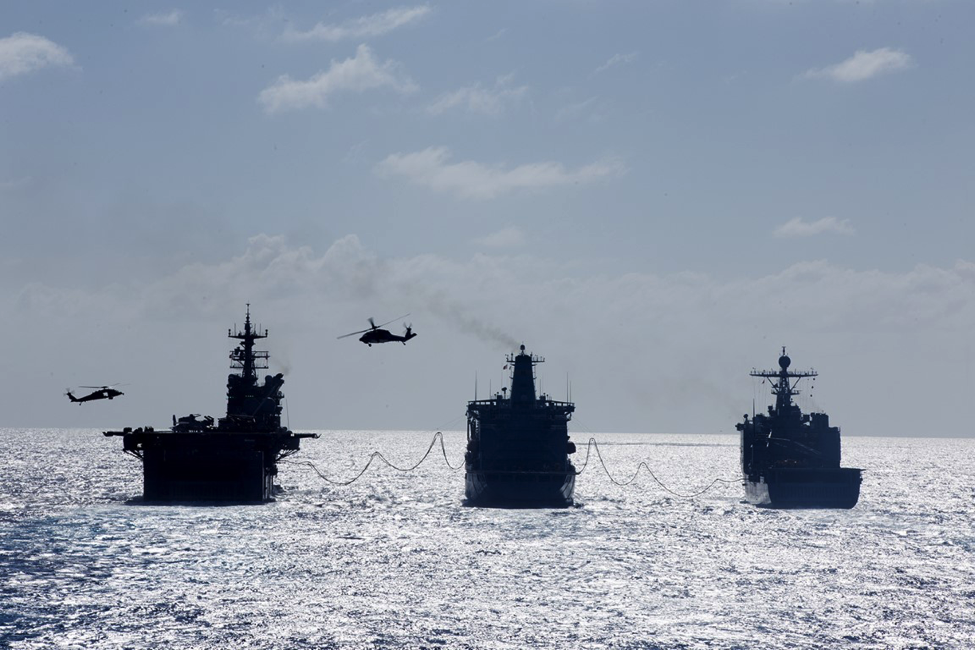Events
On July 23rd, the Potomac Institute for Policy Studies hosted Seeing Ins't Always Believing: The Realities of Imaging Technology and Neuroscience. This seminar addressed the various ways in which neuroimaging technology has advanced, and how these new developments can be used to achieve the goals of the BRAIN Initiative. The President’s Initiative has spearheaded an effort to map and understand the human brain, and novel neuroimaging technologies need to be developed in order to accomplish this goal. Neuroimaging encompasses the set of techniques that researchers use to create a structural and/or functional map of the nervous system.
Speakers included Dr. Marvin Chun (Yale University), Dr. Paul Vaska (Brookhaven National Laboratory and Stony Brook University), and Dr. Jennifer Buss (Center of Neurotechnology Studies at the Potomac Institute for Policy Studies.)
Read more: Seeing Isn't Always Believing: The Realities of Imaging Technology and Neuroscience
The year 2014 represents the most troubling security challenges since 9/11. With the escalation of violent attacks by an expanding array of terrorist groups, such as the emerging "Islamic State," the questions arises whether the worst is yet to come. Without more effective international cooperation to combat terrorism, the costs to the global community will continue to grow in 2015. The latest military operations led by Saudi Arabia in concert with its Gulf allies against the Houthi rebels in Yemen demonstrate the emerging strategic partnership trend. The Inter-University Center for Terrorism Studies organized a panel of distinguished political, diplomatic, military, and academic experts to analyze last year's lessons, assess future threats, and offer "best practices" recommendations for the U.S. and its like-minded nations.
USS San Diego, At Sea, At Sea - Military Sealift Command fleet replenishment oiler USNS Henry J. Kaiser (T-AO 187) refuels both the USS Makin Island, left, and the USS Comstock, right, as part of an underway replenishment in the Pacific Ocean, Aug. 4, 2014. The 11th MEU and Makin Island Amphibious Ready Group are a sea-based, expeditionary crisis response force capable of conducting amphibious missions across the full range of military operations. (U.S. Marine Corps photo by Gunnery Sgt. Rome M. Lazarus/Released)
USMC Returning Commander Speaker Series Event
The Center for Adaptation and Innovation at the Potomac Institute for Policy Studies hosted a program presented by the USMC Returning Commander Speaker Series on Thursday, 16 April 2015 featuring the commanders of the Makin Island Amphibious Ready Group (ARG) and the 11th Marine Expeditionary Unit (MEU). During their seven month deployment, Captain Stephen McKone, USN, and Colonel Matthew Trollinger, USMC, led a Navy-Marine Corps team that completed missions that included conducting some of the first strikes in support of Operation Inherent Resolve, humanitarian assistance in the northwestern Hawaiian islands, and theater security cooperation exercises in Bangladesh, Malaysia, Kuwait and Saudi Arabia.
Since the dawn of history, women and children have represented the most vulnerable segments of societies. During the past several years, terrorist groups and state-sponsors have escalated targeting these populations including recruitment of members, explosions, kidnappings, conversions, slavery, rape, forced marriages, and murder. The brutalization and globalization of these expanded levels of violence are, indeed, unprecedented. On Friday, January 30th 2015 an expert panel met at the Potomac Institute for Policy Studies to discuss the costs, lessons, future outlook, as well as related issues offering their insights and recommendations for “best practices” strategies to deal with this challenge. The opening remarks were presented by Michael S. Swetnam (CEO and Chairman, Potomac Institute for Policy Studies). The event was moderated by Professor Yonah Alexander (Director, Inter-University Center for Terrorism Studies, and Senior Fellow, Potomac Institute for Policy Studies). Panelists were Dr. Kathleen Kuehnast (Director, Center for Gender & Peacebuilding, United States Institute of Peace), Professor Patricia A. Maulden (Associate Professor of Conflict Resolution and Director, Dialogue & Difference Project, School for Conflict Analysis and Resolution, George Mason University), Nina Shea (Director, Center for Religious Freedom, Hudson Institute and international human-rights lawyer for over thirty years), Professor Michael Noone (The Catholic University of America’s Columbus School of Law), Dr. Mir Sadat (Professor of National Security and Foreign Policy, National Intelligence University). Closing remarks were presented by General (Ret.) Alfred Gray (Twenty-Ninth Commandant of the United States Marine Corps; Senior Fellow and Chairman of the Board of Regents, Potomac Institute for Policy Studies.

